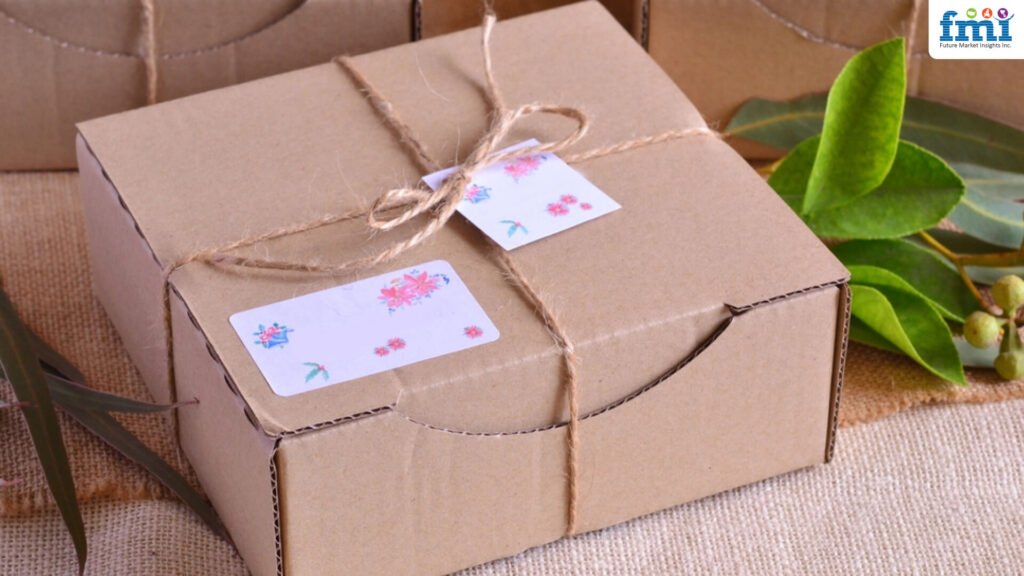
In times when sustainability is not just a buzzword but an obligation, industries globally are reconsidering their practices to minimize the carbon impact on the earth. The packaging industry is at the vanguard to innovate and use technology, and customer needs to shift to ecologically friendly options.
Here, custom packaging sets its foot as a crucial catalyst to devise sustainable and personalized alternatives that satisfy customer choices, enhances brand image and carbon reduction targets. On this path, we will discover various ways custom packaging assists in creating a sustainable future.
Resource Preservation with Customized Approach to Packaging
Efficiency and custom packing go hand in hand. Material wastage is reduced by accurately personalizing the packaging measurements to fit the product. The old-style packaging method leaves the customer with extra materials, which leads to redundant dumping that could have been avoided. Here comes custom packaging, which cuts down on the surplus and sustains the resources and the overall ecological impact.
- In December 2023, the Amazon Prime Packaging program was launched, allowing businesses to create customized product packaging. Businesses focused on delivering sustainable packaging options to cut down their carbon footprint.
The potential to design packaging accurately allows producers to use materials sensibly. Through calculated design and material choice, custom packaging attains the same level of security with lower exhaustion of resources. This cut-down curtails production costs and aids in diminishing the impact on natural resources.

Custom Packaging Adopting Recyclable Substance for an Earth-conscious Future
Custom packaging permits the incorporation of recyclable materials and designs to put forward recyclability and biodegradability as the essential factors. By using materials like recycled cardboard, bioplastics, or compostable films, custom packaging promotes the transformation inclined for a sustainable economy. By easing out the separation method, consumers are facilitated to take part actively in recycling plans.
- Alder Packaging, a pioneer sustainable beauty packaging firm headquartered in Los Angeles, collaborated with Axilone USA, a luxury cosmetic packaging manufacturer, to present environment-friendly luxury packaging choices in February 2023. The organizations aim to strengthen greener packaging production in the cosmetics sector in accordance with the alliance.
- A startup that keeps consumer education forward is Ecologi. Ecology has devised a subscription service where consumers can compensate for their carbon footprint and sanction funds for reforestation projects. They also provide information to assist customers in making ecologically aware choices, like tips on curbing waste generated by packaging.
Custom Packaging – A Catalyst to Educate Consumers on Environmental Footprints
Custom packing boxes are an avenue to make consumers aware of sustainability activities. The brands can attract customers with creative designs, informative labeling, and QR codes guiding to sustainability practices of the firm. This packaging promotes awareness and understanding and authorizes consumers to make informed decisions and bolster environmentally-safe strategies.
- Packhelp raised a capital of US$ 45.6 million in investment in November 2021 to strengthen its tailor-made packaging organization. Owing to the advent of e-commerce and on-demand delivery, Packhelp has helped small startups or producers pack their products in alluring customized packaging, and big titan industries like H&M and Uber Eats.
According to market research from Future Market Insights, the demand revenue of custom packaging boxes is predicted to be US$ 9.0 Billion by 2032. The custom packaging boxes market reflects a moderate CAGR of 4.70% during the forecast period.
- Robinson Plc collaborated with Holdsworth to assist in the production of sustainable boxes for the chocolate products range in September 2021.
- Another startup, called Ecovative Design, makes packaging materials by making use of mushroom mycelium. These environmentally friendly materials are made using agro-waste and are formed into different shapes and sizes to be molded into various packaging requirements. Once the packaging is used for the purpose fulfillment, it is then composted and returned to the soil nutrients.
Deconstruction and Reuse – A Blueprint for Sustainable Consumption
An essential norm for sustainable packaging is tailoring it for dismantling and reuse. Custom packaging allows the blend of modular designs, resealable attributes, and easy-to-separate materials, aiding in the reuse of the packaging post-consumption. By stretching the packaging lifespan and diminishing single-use wastage, custom solutions cater to a justifiable package lifecycle.
- Loop is a company that collaborates with major brands to provide reusable packaging for daily use products. Customers buy products in durable, refillable storage containers, which can be later on cleaned and reused. This model cuts down the use of single-use packaging.
Response of Custom Packaging to Regulatory Adaptation
Regulatory outlook and consumer choices as carbon-neutral or environment-friendly are constantly in transition. This type of packaging supports the resilience required to reconcile with these alterations rapidly. Be it development towards substitute materials, assimilating new labeling necessities, or rebranding packaging configurations. Custom solutions certify brands to lead in regulatory authorizations and customer requirements.
- C-P Flexible Packaging, for a confidential sum in August 2021, acquired Fruth Custom Packaging and its ancillary, Cleanroom Film, and Bag (CFB). The possession aids C-P in proliferating its West Coast footprint and packaging expertise for electronics, biopharmaceuticals, medical devices, and semiconductors.
Custom Packaging as a Stimulus for Holistic Environmental Assessment
A thorough understanding of the whole lifecycle of packaging is crucial to evaluate its environmental impact. The inclusion of life cycle assessment (LCA) principles at the design stage is made easier with custom packaging. Custom solutions aid organizations in making data-driven decisions that curb the environmental impacts along the value chain by accounting for variables such as procurement of materials, manufacturing techniques, transportation, and end-of-life situations.
Final Remarks
Custom packaging is a centerpiece as we are moving toward a sustainable future. The packaging industry is set to curtail its global carbon footprint by inclining towards resource efficiency, consumer engagement, and recyclability.
To gain an extensive adoption of sustainable and customizable packaging solutions, collaborative steps from manufacturers, policymakers, retailers, and consumers will be required. Custom packaging is optimistic for a greener, healthier, more eco-conscious tomorrow through actions like ongoing innovation, education, and promotion.
Ismail Sutaria, the Principal Consultant for the Packaging Sector at Future Market Insights (FMI), comments, “On the trip towards a zero-carbon future, custom packaging is the pathfinder of innovation, nudging us that every eco-cautious choice we make in the present is a seed we sow for a promising future.”
